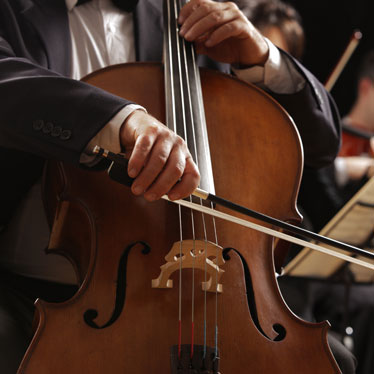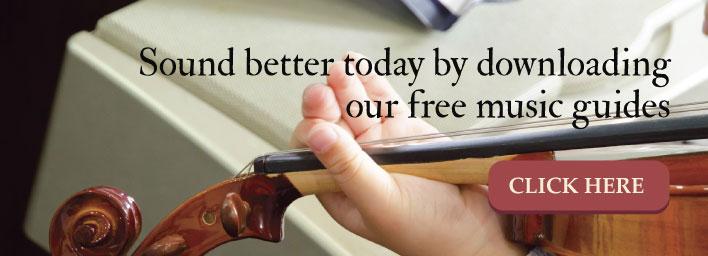Secret Performance Techniques From Top Cellists

When music students decide to play the cello, there are many new processes and information to assimilate. Like all string instruments in the violin family, learning to play the cello means that you need to train your body to perform the correct executions, and your ear to hear the correct intonation. However, you also need to develop solid practicing habits and push your own boundaries to enhance your ability. Your instructor will be able to set you on the right path and provide the foundational knowledge you’ll need to develop your skills.
In addition to the information your teacher gives you, wouldn't it be amazing to hear tips from top cellists in the field? Below are performance techniques and playing tips from top cellists which can help you grow as a musician and offer effective new ideas for your practice time.
Yo-Yo Ma
This celebrated cellist is probably one of the most recognized musicians in the world. His advice on cello performance techniques are unparalleled. These tips come from personal interviews with Strings Magazine and The Strad.
- Know your “tradition deeply—be passionate about it.”
- Be “open-minded” and respect the values of other traditions, not just your own.
- When practicing, “it’s the concentration that counts.”
- Concerning vibrato: “The more you can rely upon the flesh and bones in your arm for vibrato, the better… the weight of the arm is important in producing the basic sonority.”
- On the bow arm, he suggests efficiency saying, “…use as much back, shoulder and natural arm weight” as possible in order “to push and pull the bow rather than squeeze it.”
- Regarding performance tips, he suggests that experience is vital. “You have to work in many different physical conditions, receive comments from friends and colleagues, and listen to your recordings,” and that your goal should be “a wonderful sense of sharing.”
Ralph Kirshbaum
Ralph Kirshbaum is a distinguished concert cellist and pedagogue who was recently interviewed by Play With A Pro, discussing his four pieces of advice for cellists. His take on those topics:
- Nerves—Direct the additional “energy” into an “advantage and use it positively.” It’s all about your perspective, and you “should keep your focus where it needs to be,” rather than allowing your mind to amplify a possible tragedy that might not happen.
- On How to Stay Positive—When discussing what he does if he feels like his playing isn’t very good, he explained, rather than forcing yourself to keep at it, “walk away from it.” Sometimes it can help you to simply refresh yourself with some other pursuit before you try practicing again. You can also “listen to a great artist.” There are tons of great performances that you can watch on YouTube. Take some time just to focus on someone else’s art, so that you can become re-inspired about your own.
Julian Lloyd Webber
Another notable cellist, Webber offered his advice for cellists in a 2014 article posted on The Guardian.
- On Becoming a Soloist—Don’t be afraid to explore new music. Just because you can play great masterpieces doesn’t mean you are “entitled to have a great career.” His two “cello idols, Pablo Casals and Mstislav Rostropovich” became great because they would push boundaries.
- On Establishing a Career—Webber encourages cellists interested in a professional music career to spend as much time studying business as “practicing [your] art” and “to find their unique space in the marketplace.” You have to develop your niche just like any other profession so that you can offer something unique. “The only lasting way to success in the music business is to discover your own voice in a massively overcrowded marketplace.”
Pablo Casals
Regarded by many musicians as one of the greatest, most quintessential cellists of all time, Casals lived a long life and received many honors and accolades. In his book with Albert Kahn, Joys and Sorrows, he gives his advice for cellists and other young talented musicians:
“Don’t be vain because you happen to have talent. You are not responsible for that; it was not of your doing. What you do with your talent is what matters. You must cherish this gift. Do not demean or waste what you have been given. Work — work constantly and nourish it.”
Learning from other cellists who have experienced everything that you are going through can help you chart your course as a professional musician. Don’t be afraid to seek advice on your own personal journey.


